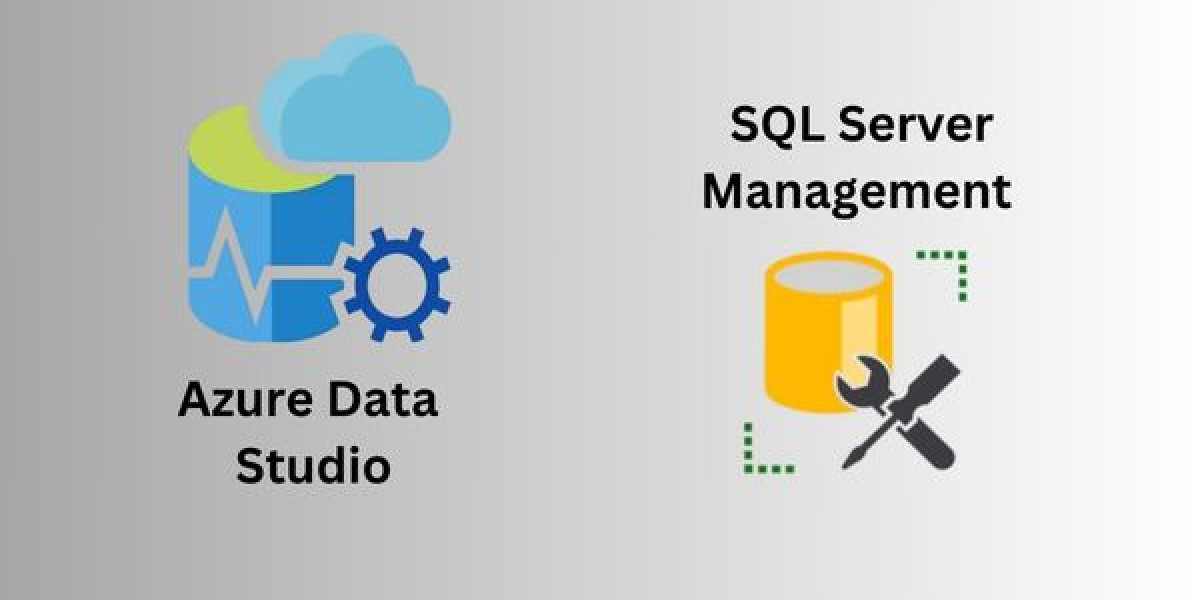Managing databases efficaciously calls for the proper tools, and in the Microsoft surroundings, two popular picks are SQL Server Management Studio (SSMS) and Azure Data Studio (ADS). Both have unique functions and serve unique purposes. Here's a more in-depth study their variations and what they offer:
1. Platform Compatibility
SSMS: Exclusively to be had for Windows, making it a cross-to for users in a purely Windows environment.
ADS: Supports Windows, macOS, and Linux, imparting flexibility for groups running across extraordinary systems.
2. Target Audience
SSMS: Best appropriate for Database Administrators (DBAs) and SQL Developers who require sturdy database management and tracking gear.
ADS: Caters to a much wider variety of experts, such as Data Engineers, Developers, and Data Scientists who want versatility and cutting-edge equipment.
3. User Interface and Experience
SSMS: Features a traditional interface acquainted to lengthy-time SQL customers, but it lacks vast customization options.
ADS: Offers a contemporary, customizable interface that includes features like subject matters and extensions, growing a extra intuitive enjoy.
4. Scripting and Language Support
SSMS: Primarily targeted on T-SQL, which is the center language for SQL Server.
ADS: Supports a couple of scripting languages including T-SQL, Python, R, and Jupyter Notebooks, making it appropriate for multi-language environments and facts analysis tasks.
5. Performance Monitoring
SSMS: Comes with built-in, local equipment for complete performance monitoring and tuning.
ADS: Requires extensions for performance monitoring, which is probably less convenient for a few customers.
6. Source Control Integration
SSMS: Offers confined integration with supply manage systems.
ADS: Provides built-in supply manage integration, allowing seamless version manage for scripts and notebooks.
7. Visual Query Design
SSMS: Includes a visible question dressmaker that simplifies question introduction for users with out deep SQL know-how.
ADS: Does now not offer a visible question layout function, focusing greater on script-based totally interactions.
8. Extensions and Notebooks Support
SSMS: Limited guide for extensions, making it less flexible for including new features.
ADS: Supports plenty of extensions, consisting of SQL Notebooks, which might be terrific for documentation, evaluation, and sharing insights.
9. Pricing
Both SSMS and ADS are free, making them on hand to experts and teams without additional price issues.
Final Thoughts: Choosing the Right Tool
When finding out about SQL Server Management Studio vs Azure Data Studio, recollect your specific desires:
Choose SSMS in case you require a complete control tool strictly for SQL Server on Windows, with superior overall performance tuning and a familiar interface.
Opt for ADS if you prefer a contemporary, bendy, and go-platform tool with assistance for multiple scripting languages, extensions, integrated supply management, and SQL Notebooks.
Both tools are treasured on their own properly, and many experts use them in tandem to take benefit of their specific capabilities. Understanding those variations will help you pick the quality device on your specific workflow and team environment.
Conclusion
The choice among SQL Server Management Studio (SSMS) and Azure Data Studio (ADS) relies upon your particular needs and work environment. SSMS is the preferred device for DBAs and SQL builders searching for a complete, Windows-best solution with strong database control and overall performance tuning features. On the other hand, Azure Data Studio gives a cutting-edge, cross-platform method tailored for a much broader audience, consisting of statistics professionals, engineers, and developers, with a focus on versatility, customization, and collaboration through extensions and SQL Notebooks. Ultimately, both tools have their strengths, and the usage of them in aggregate can offer a properly rounded approach to database management and development inside the Microsoft environment.







